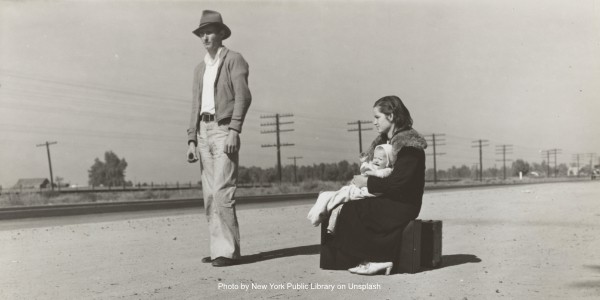How Much Courage Does it Take? (WT428)
Blog
You know from the past few weeks that Ross and I have been travelling throughout NSW on a roadshow with the Association of Consulting Surveyors.
We had some time before travelling to the next town so we decided to explore.
I just love being able to be spontaneous. We passed a sign on the road that read, “Bonegilla Migrant Experience”. Having worked with the late Dagnija (pronounced Dugnea) McGrath, Co-Founder of Kip McGrath Education Centres, who as a child came to Australia from Latvia and found herself in a migrant camp, I was curious to see for myself.
Wow! The courage the migrants must have had to take on the journey to another country they knew nothing about with no more than one suitcase for their worldly belongings, just blows my mind.
It’s true, fear also played a major role, motivating them to leave their war torn countries, but it took so much courage to survive and thrive.
Families lived in two rooms in the old army barracks at Bonegilla (on the NSW and Victorian border). The rooms were not clad until the 1950’s and there was no heating or air-conditioning.
Each morning residents had to queue to get into the ablution block. Hot water often ran out. The food was different to what they were used to and the only sense of control the women had was doing the family washing. Their meals were prepared for them and as Mrs McGrath once told me, because of her experience she could not line up for food in a cafeteria, etc.
As we walked around the camp and talked with Alice, our very passionate and knowledgeable guide, I was reminded of what it takes to succeed in business and in life.
Alice told us that the new arrivals were terrified when they arrived by boat and were placed on a train (the red rattler) thinking they were going off to their death as happened to so many family members in Europe, only to find themselves at the end of the train journey in the middle of a large paddock in what seemed like the middle of nowhere.
They were known as “Reffos”, (slang for refugees) and often experienced discrimination because of their situation and yet they survived and many thrived, including Karl Kruszelnicki AM, often referred to as “Dr Karl”, an Australian science communicator and populariser, who is known as an author and science commentator on Australian radio and television. Dr Karl came to Australia as a refugee and lived in Bonegilla for 3 months. During an interview with Anh Do, he recalled how, as a “reffo”, he had to walk to school in the rain whilst the other local kids would be picked up and driven.
So what does that have to do with you and business and life?
Firstly, acknowledge yourself for the courage you have shown to get to where you are now. Wherever you are in life or business, you have survived to this point. At times you would have experienced fear and would have dug deep to find your courage to continue.
Be inspired by the fact that we can overcome obstacles and that if you’re “doing it tough at the moment”, that there is hope. This too will pass.
Just as the migrants were courageous and brave, so too are you.



